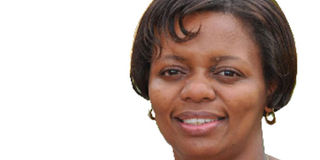Parties should get more women for elective office

In the next few months, Uganda will hold the sixth General Election since the 1995 Constitution was promulgated. The political landscape is already heating up with different actors debating the feasibility of what the Electoral Commission calls a scientific election owing to government’s measures to curb the spread of coronavirus.
For actors in the women’s movement like the Forum for Women in Democracy (FOWODE) that I have the honour of leading, our focus has been and remains on the access, barriers and constraints that women contend with in the country’s elective politics.
Recently, we launched a report arising from a study led by Makerere University professor Josephine Ahikire. The report: ‘Women shattering the glass ceiling: Experiences from the 2016 elections in Uganda’ is a sobering reminder of the grim reality of Uganda’s long walk to a gender inclusive political space for women.
Thanks to affirmative action, Uganda has attained a critical mass of women in political representation and if you contrast this with where we were before the 1995 Constitution clearly, we have made progress though there remains a lot of work to be done. Women who contest for open seats remain marginal. According to the findings of our study, there are only 20 female legislators who were directly elected to represent open seat constituencies in the 10th Parliament as of the year 2019.
These make only 4.6 per cent of the entire 10th Parliament. At the local council level, there are only three female district chairpersons out of 126 districts. The female LC5 chairpersons are from Kanungu, Kole, and Kumi districts. According to the 2018 Equal Opportunities Commission (EOC) report, only 0.01 per cent of women are serving as local council III chairpersons/division mayors countrywide.
Our research team noted that affirmative action has produced its own exclusive enclave and normalised it as a women’s space, in opposition to men. This kind of polarity of affirmative action as the sanctioned space for women’s political engagement and men as actors in directly elected seats is deeply embedded in the everyday political narratives and propaganda across all the communities we visited in the country.
Notably, this narrative of men and women’s spaces for political engagement is rooted in the framing of affirmative action that quickly gained a local dialect label – ekifo ky’abakyala (women’s space), which in effect presumed the open seat as ekifo ky’abasajja (men’s space).
As a parallel structure, the affirmative action policy constrained competition between women and men, normalised mainstream politics as a male space consequently marginalising women.
The study confirmed the enormous blockages that women on open seats face, with reasonings around culture, religion and traditional gender division of labour given as the most important to resist women’s candidature. However, it was revealing to understand how women drew on the same structures of oppression (culture, religion and historical discourses) to frame strategies that allowed them to negotiate the resistances they met.
A lot remains to be done for women to have equal opportunities with men to run for open seats. Women’s rights organisations and political parties should identify and support women to stand for open seats. Financial support could be given in form of printing posters, crafting campaign messages and money to facilitate female candidates travel to communicate to voters. They should also consolidate and sustain numbers of women on open seats.
To realise the letter and spirit of the 1995 Constitution, the government’s gender policy, regional and international legal instruments that affirm our country’s commitment to advance the struggle for gender must be deliberate about empowering women.
Ms Patricia Munabi Babiiha is the executive director
of the Forum for Women in Democracy (FOWODE)




